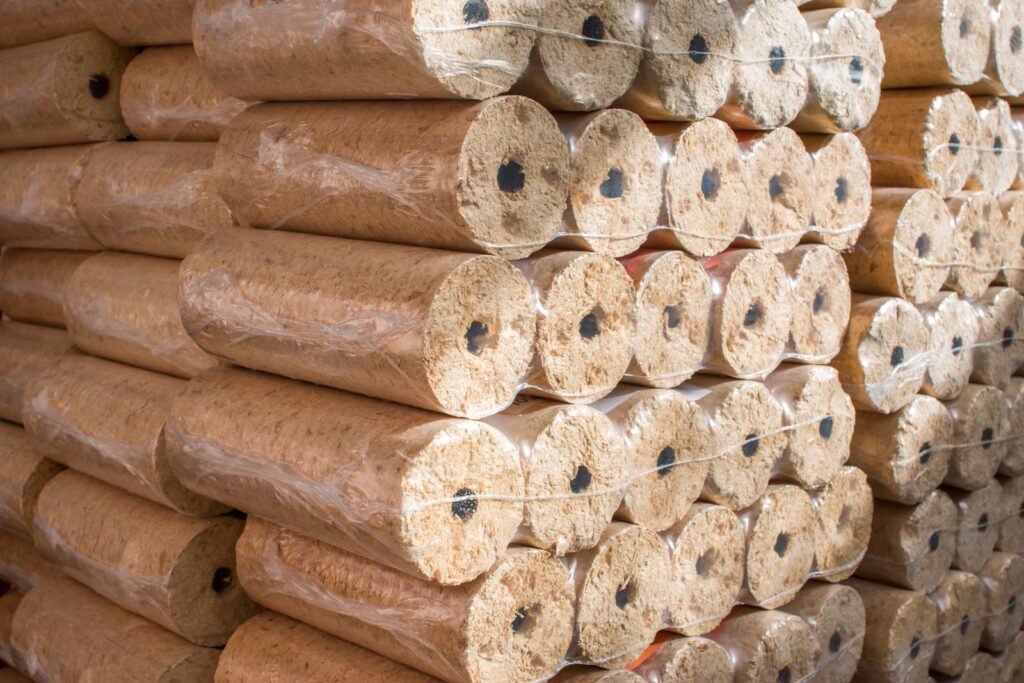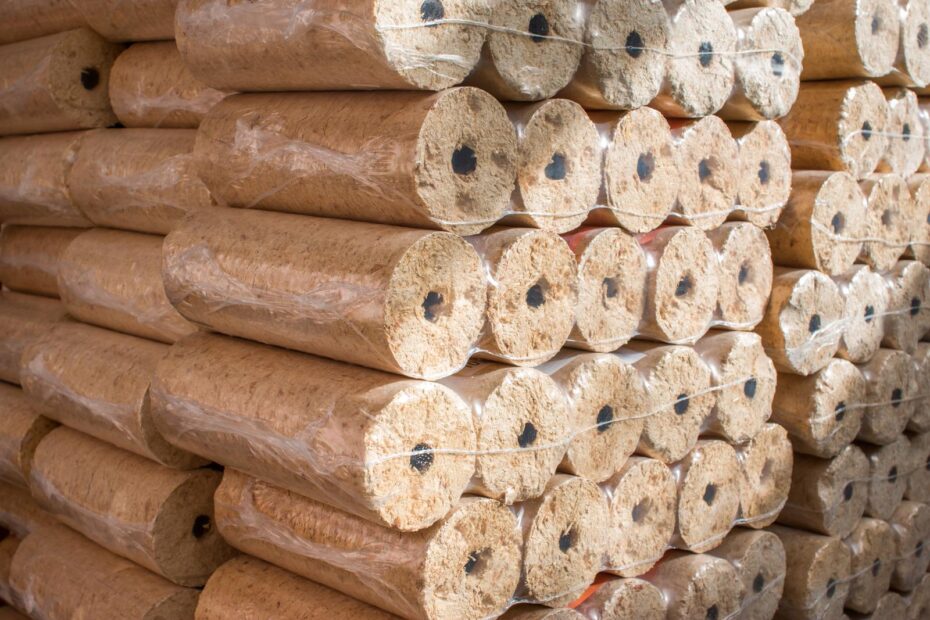
Introduction to Biomass Briquettes: A Green Energy Revolution
The global energy landscape is undergoing a remarkable transformation, with sustainable solutions emerging as critical alternatives to traditional fossil fuels. Biomass briquettes represent a groundbreaking approach to renewable energy, offering an environmentally conscious solution to growing energy demands. These compressed organic materials provide a clean, efficient, and renewable energy source that is capturing the attention of environmentalists, industrialists, and policymakers worldwide.
Biomass briquettes are created by compressing organic waste materials such as agricultural residues, forest waste, and industrial byproducts into dense, compact fuel units. The process of creating these briquettes transforms what would typically be considered waste into a valuable energy resource. By utilizing materials that would otherwise be discarded, this innovative technology addresses both waste management and energy production challenges simultaneously.
The environmental benefits of biomass briquettes extend far beyond simple waste reduction. These compact fuel sources produce significantly lower carbon emissions compared to traditional fossil fuels, making them a critical tool in the fight against climate change. Their production supports circular economy principles by converting waste materials into valuable energy resources, creating a sustainable cycle of resource utilization.
As global communities seek innovative solutions to reduce carbon footprints, biomass briquettes emerge as a promising technology with the potential to revolutionize sustainable energy production. Their versatility, efficiency, and environmental credentials position them as a key player in the transition towards a more sustainable energy future.
The Science Behind Biomass Briquette Production
Manufacturing biomass briquettes involves a sophisticated process that combines advanced technological principles with sustainable resource management. Scientists and engineers have developed intricate techniques to transform organic waste into high-efficiency fuel sources, carefully selecting and processing raw materials to maximize energy potential and minimize environmental impact.
The production process begins with collecting and sorting appropriate organic materials, which can include agricultural waste, forestry residues, industrial byproducts, and other biomass sources. These materials undergo careful preparation, including cleaning, drying, and size reduction to ensure optimal compression and energy density. Advanced machinery applies significant pressure to compact these materials into dense, uniform briquettes.
Modern biomass briquette production incorporates cutting-edge technologies that enhance energy efficiency and product quality. Specialized compression machines apply precise temperature and pressure conditions to bind organic materials without requiring additional chemical adhesives. This approach ensures the briquettes maintain structural integrity while preserving their natural combustion properties.
Researchers continue to innovate in biomass briquette production, exploring new materials, improving compression techniques, and developing more efficient processing methods. These ongoing advancements promise to increase the energy density, reduce production costs, and expand the potential applications of biomass briquettes across various industrial and domestic sectors.
Environmental Impact and Carbon Neutrality
Biomass briquettes represent a significant breakthrough in sustainable energy solutions, offering a carbon-neutral alternative to traditional fossil fuels. Unlike coal or petroleum-based energy sources, biomass briquettes release only the carbon dioxide that was originally absorbed by the plants during their growth, creating a closed carbon cycle that minimizes net greenhouse gas emissions.
The environmental advantages of biomass briquettes extend beyond carbon neutrality. By utilizing agricultural and forestry waste materials, these fuel sources help address waste management challenges while creating economic opportunities for rural communities. The production process supports local economies by generating value from materials that would typically be considered worthless or problematic.
Comparative studies consistently demonstrate the substantial environmental benefits of biomass briquettes. They produce significantly lower particulate emissions compared to traditional wood burning, contributing to improved air quality and reduced environmental pollution. The controlled combustion process ensures more complete burning, resulting in more efficient energy generation with minimal environmental impact.
Global environmental organizations increasingly recognize biomass briquettes as a critical tool in mitigating climate change. By providing a sustainable, renewable energy source that can replace fossil fuels in various applications, these innovative fuel sources play a crucial role in supporting international carbon reduction strategies and promoting sustainable development.
Economic Advantages for Industries and Communities
The economic potential of biomass briquettes extends across multiple sectors, offering compelling financial advantages for industries, agricultural communities, and energy providers. By transforming waste materials into valuable fuel sources, this technology creates new revenue streams and reduces energy production costs for businesses and municipalities.
Agricultural communities stand to benefit significantly from biomass briquette production. Farmers can generate additional income by selling agricultural residues that would otherwise be considered waste. This approach provides economic incentives for sustainable waste management while creating new market opportunities in the renewable energy sector.
Industrial sectors are increasingly adopting biomass briquettes as a cost-effective and environmentally responsible energy solution. Manufacturing facilities, power plants, and large-scale industrial operations can reduce their energy costs while simultaneously improving their environmental credentials. The consistent energy density and predictable combustion characteristics of biomass briquettes make them an attractive alternative to traditional fossil fuels.
The growing global market for biomass briquettes represents a significant economic opportunity. Developing and developed countries alike are investing in infrastructure and technologies to support biomass briquette production, recognizing the potential for job creation, waste reduction, and sustainable economic development.
Technological Innovations in Briquette Manufacturing
Technological advancements are continuously improving biomass briquette production, making the process more efficient, sustainable, and scalable. Cutting-edge research focuses on developing more sophisticated compression techniques, exploring innovative raw material combinations, and enhancing the overall energy performance of biomass briquettes.
Advanced sensing and monitoring technologies now enable precise control over the briquette production process. Machine learning algorithms and artificial intelligence help optimize compression parameters, material selection, and quality control, ensuring consistent product quality and maximum energy efficiency. These technological interventions reduce waste and improve overall production economics.
Nanotechnology and material science are playing increasingly important roles in biomass briquette development. Researchers are exploring novel binding techniques, investigating advanced compression materials, and developing methods to enhance the energy density and combustion characteristics of biomass briquettes. These innovations promise to expand the potential applications of this sustainable fuel source.
The integration of digital technologies is transforming biomass briquette manufacturing from a traditional industrial process to a sophisticated, data-driven industry. Real-time monitoring, predictive maintenance, and advanced quality control systems are improving production efficiency and reducing environmental impact.
Global Adoption and Future Potential
The global adoption of biomass briquettes is gaining momentum, with countries around the world recognizing the potential of this sustainable energy solution. Developing nations, in particular, are exploring biomass briquettes as a strategy to address energy poverty, reduce environmental degradation, and create economic opportunities for rural communities.
International organizations and governmental bodies are increasingly supporting biomass briquette technologies through policy initiatives, research funding, and infrastructure development. These efforts aim to accelerate the transition towards renewable energy sources and support global carbon reduction targets.
Emerging markets present significant opportunities for biomass briquette expansion. Countries with substantial agricultural sectors can leverage their organic waste materials to generate clean, sustainable energy. This approach not only addresses energy challenges but also supports local economic development and environmental sustainability.
The future of biomass briquettes looks promising, with ongoing research and technological innovations continually expanding their potential applications. As global communities become more committed to sustainable development, biomass briquettes are poised to play a crucial role in the global transition towards cleaner, more efficient energy systems.
Challenges and Opportunities in Biomass Briquette Development
Despite the tremendous potential of biomass briquettes, the technology faces several challenges that require ongoing research and innovation. Technical limitations, economic barriers, and infrastructure constraints present opportunities for continued technological and strategic development.
One primary challenge involves developing standardized production processes that ensure consistent quality across different raw material sources. Researchers are working to create comprehensive guidelines and quality control mechanisms that can be applied globally, helping to establish biomass briquettes as a reliable and predictable energy source.
Economic challenges include the initial investment required for production infrastructure and the need to compete with established fossil fuel industries. However, these challenges also present opportunities for innovative financing models, government incentives, and technological advancements that can reduce production costs and increase market competitiveness.
The ongoing development of biomass briquette technologies requires collaborative efforts from researchers, industry professionals, policymakers, and environmental experts. By addressing technical, economic, and infrastructural challenges, the global community can unlock the full potential of this promising sustainable energy solution.
Health and Safety Considerations
Ensuring the health and safety of biomass briquette production and utilization is a critical aspect of their widespread adoption. Comprehensive safety protocols, rigorous quality control, and advanced manufacturing techniques are essential to mitigate potential risks associated with biomass fuel production.
Compared to traditional wood burning and fossil fuel combustion, biomass briquettes offer significant health advantages. They produce lower levels of particulate matter and harmful emissions, contributing to improved air quality and reduced respiratory health risks. The controlled combustion process ensures more complete burning and fewer toxic byproducts.
Occupational safety in biomass briquette production requires careful attention to dust management, machinery operation, and workplace ergonomics. Advanced protective equipment, comprehensive training programs, and strict safety regulations help minimize potential risks to workers involved in briquette manufacturing and distribution.
Ongoing research continues to improve the health and safety aspects of biomass briquette technologies. By developing more advanced production techniques, enhancing quality control mechanisms, and implementing comprehensive safety standards, the industry can ensure the responsible and safe expansion of this sustainable energy solution.
Implementation Strategies for Different Sectors
Successful implementation of biomass briquettes requires tailored strategies that address the unique energy needs of various sectors. Industrial, residential, agricultural, and institutional applications demand specific approaches to maximize the benefits of this sustainable fuel source.
Industrial sectors can integrate biomass briquettes by gradually replacing fossil fuels in thermal processes, power generation, and heating applications. Careful analysis of energy requirements, infrastructure modifications, and combustion system adaptations are crucial for successful implementation. Pilot programs and phased transitions can help organizations effectively incorporate biomass briquettes into their energy strategies.
Residential and community-level applications require user-friendly technologies and comprehensive education programs. Designing efficient cooking and heating systems that are compatible with biomass briquettes, providing training on proper usage, and demonstrating economic benefits can encourage widespread adoption in domestic settings.
Agricultural communities can develop localized biomass briquette production systems that utilize agricultural waste, creating additional revenue streams and reducing waste management challenges. Cooperative models and community-based initiatives can help distribute the economic and environmental benefits of biomass briquette technologies.
The Future of Sustainable Energy
Biomass briquettes represent a powerful solution in the global transition towards sustainable, clean energy systems. By transforming waste materials into valuable fuel sources, this innovative technology addresses multiple environmental, economic, and social challenges simultaneously.
The continuous technological advancements, growing global awareness, and increasing commitment to sustainable development position biomass briquettes as a critical component of future energy strategies. As research continues and production techniques improve, these compact, efficient fuel sources will play an increasingly important role in mitigating climate change and supporting sustainable development.
Collaboration between researchers, industry professionals, policymakers, and communities will be essential in realizing the full potential of biomass briquettes. By investing in research, developing supportive policies, and creating infrastructure that supports sustainable energy technologies, we can accelerate the global transition towards a more sustainable, resilient energy future.
The journey of biomass briquettes represents hope, innovation, and the incredible potential of human creativity in addressing some of our most pressing environmental challenges. As we continue to explore and develop sustainable energy solutions, biomass briquettes stand as a testament to our collective ability to create meaningful, positive change.
#biomassbriquettes #sustainableenergy #renewablefuel #carbonneutrality #wastemanagement #greentechnology #cleanenergy #environmentalinnovation
